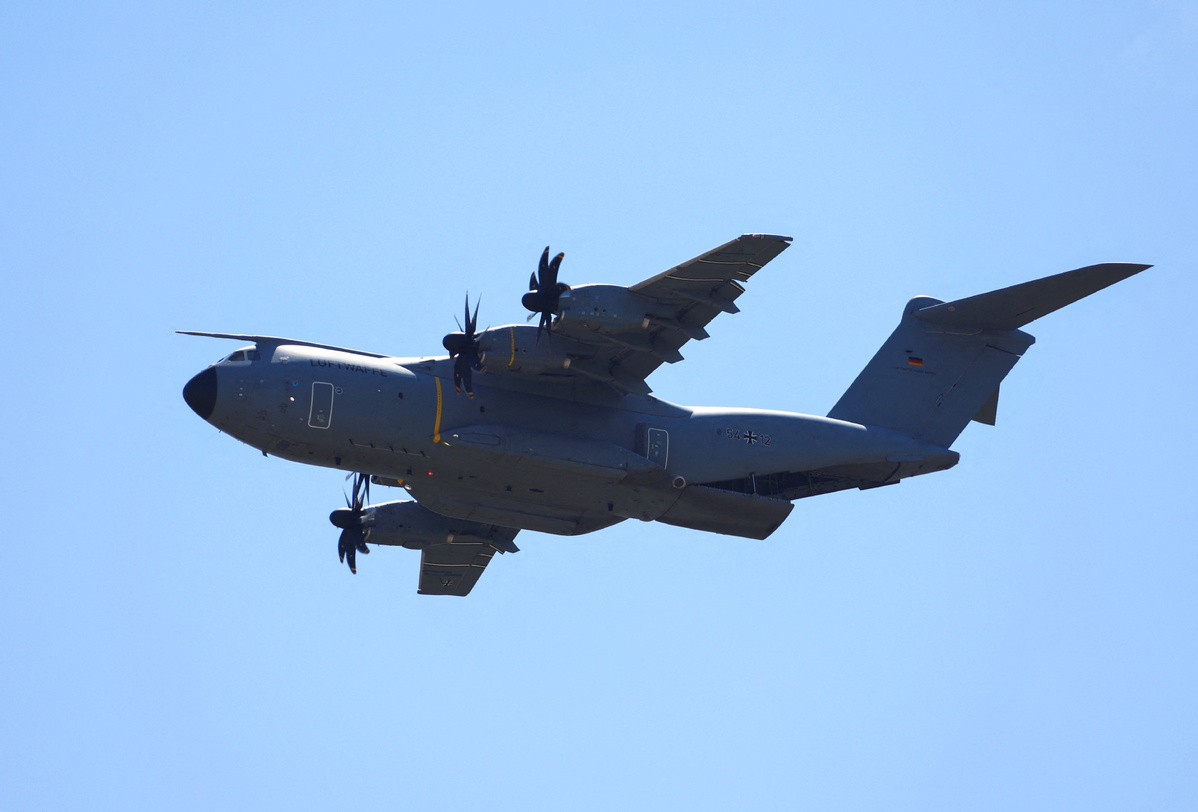Germany, Japan beefing up their defense spending
China Daily Global | Updated: 2022-09-23 08:03

Scholz says country's military must become cornerstone of Europe's conventional defense
The shift of defense policies in Germany and Japan, which have strictly limited military spending since being defeated in World World II, is a cause of concern, Chinese experts warned.
At a German armed forces conference on Sept 16, German Chancellor Olaf Scholz said the German military must become Europe's best-equipped, German public international broadcaster Deutsche Welle reported.
"We are making it convincingly clear: Germany is ready to take on leading responsibility for the security of our continent," he said.
The meeting had the title "The Bundeswehr (federal defense) in a New Era — Taking Critical Stock at a Time of War in Europe".
As the continent's most populous country with the greatest economic power and because of its central location in the continent, Germany and its army must become the cornerstone of conventional defense in Europe, Scholz added.
"The core task of the Bundeswehr is to defend freedom in Europe," he said, adding that all of its other tasks, such as providing humanitarian aid and helping with vaccinations during pandemics, had to take a secondary role.
The chancellor said the German government was also ready to review restrictions regarding military export rules that affect joint defense projects, according to Deutsche Welle.
Berlin has made a preliminary decision to buy the Arrow-3 defense system, made by Israel Aerospace Industries, which intercepts ballistic missiles outside Earth's atmosphere, the Jewish News Syndicate reported.
Israeli Prime Minister Yair Lapid and Scholz met in Berlin on Sept 12, driving home the message that a major defense deal is in the works, according to Bloomberg.
Lapid told reporters that Israel "will play a role in developing Germany's new defense force, namely in the sphere of air defense", and Scholz said his country is "eager to collaborate with Israel" on defense.
Japan is also boosting its military muscle.
To fund a substantial increase in defense spending, the Japanese government is considering issuing special bonds with an eye to raising taxes in the future to pay back the debt, Kyodo News Agency reported.
Increasing corporate or tobacco taxes would be among the options to raise revenue.
In May, Japanese Prime Minister Fumio Kishida told visiting US President Joe Biden that his government would substantially increase defense spending. Japan's ruling Liberal Democratic Party has called for boosting the defense budget to no less than 2 percent of GDP within five years.
In 1976, the Japanese Cabinet voted to limit the spending to below 1 percent of gross domestic product. The cap was removed from the fiscal 1987 budget, but the figure has mostly remained around the 1 percent threshold, according to the weekly Nikkei Asia.
On August 31, Japan's Ministry of Defense asked for 5.59 trillion yen ($40.4 billion) for fiscal year 2023, its largest ever budget request.
The request, a 1.1 percent increase over the initial budget in this fiscal year, is the 11th consecutive budget increase under a Liberal Democratic Party-led government.
The request will be sent to the Ministry of Finance for consideration, and a decision is expected by late December. It includes funding for 100-plus items — such as the development of domestic standoff missiles that can be fired from the Japan Self Defense Forces vehicles, vessels and aircraft, and the joint development of a next-generation fighter with the United Kingdom, according to Kyodo News.
The Kishida administration has undertaken the revision of all three of the country's key security policy documents — the National Security Strategy, National Defense Program Guidelines and Medium-Term Defense Program — by the end of 2022.
In a China Global Television Network program, Jin Yinan, a Chinese defense adviser, said Germany and Japan have a lot in common.
They are economically developed, with Germany being the economic driving engine of Europe, and Japan an important economic powerhouse in Northeast Asia.
Both are technologically advanced.
And they also both host US troops on their territories, which suggests that the US has some say in their doings.
"Had the Russia-Ukraine conflict not happened, it would be unlikely that the US would allow the two countries to beef up their military defenses," Jin said.
What is alarming is that Germany and Japan have not announced that they would never develop nuclear arms amid their military buildup, the military adviser said.
Li Chao, a researcher at the Institute of European Studies of China Institutes of Contemporary International Relations, said a country's military strength can't be upgraded overnight and it is premature to predict a how and when of a shift in Germany's security policy.
Li added that there is no need to worry about Germany becoming a military hegemon again.
Three German Eurofighter jets will arrive at the Hyakuri Air Base in Ibaraki prefecture, near Tokyo, on September 28 for the first joint training with Japan's Air Self-Defense Force, NHK reported.
























